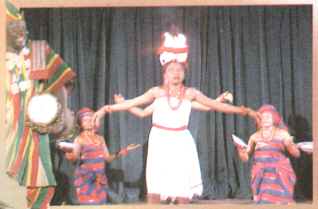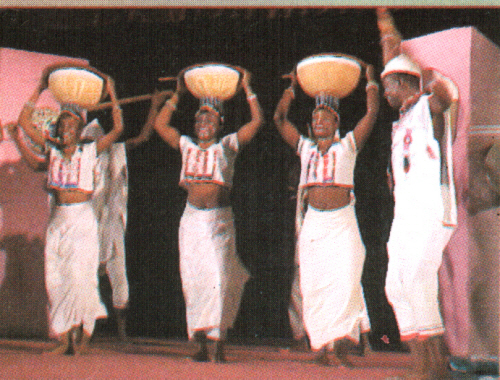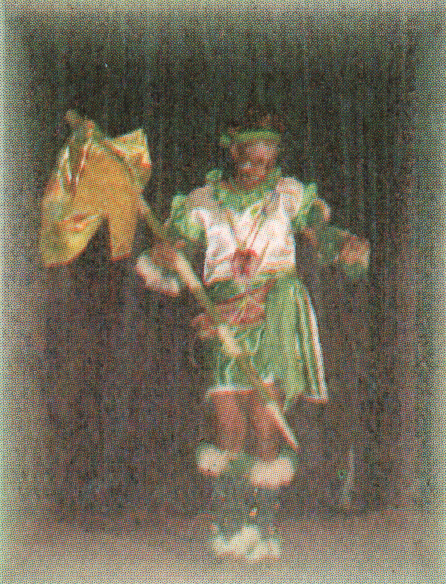KCC Programs
30 Years of Diplomatic Relations: Korean Troupe visits Nigeria
- Post DateSep 21, 2010
- Hits3321 Hit
30 Years of Diplomatic Ties: Korean Troupe Visits Nigeria
Date: 2010.9.29, 19:00
Venue: CONGRESS HALL, TRANSCORP HILTON HOTEL, ABUJA
<PROGRAM>
-5 Korean Dances
: Samullori, Hallyangmu, Seoljanggu, Salpuri, Pangut
Number of Korean Dancers: 20
-3 Nigerian Dances
: Aje Dance, Ekombi, Fulani Dance
<Samullori>
Samullori/ Folk Percussion Ensemble: refers to a performance of samul(four instruments) which are kkwaenggwari( a small gong), janggu(an hour glass drum, buk( a barrel drum), and jing( a large gong).Samullori, which first appeared in 1978, is a stage version of the large-scaled, outdoor entertainment form called pungmul.
<Hallyangmu>
Hallyangmu/ Folk Dance: Hallyangmu is folk dance that expressses the pleasures of life spent in enjoying oneself with "grace (meot)", pursuing the beauty of nature and art. A hallyang refers to a young man who has the ability to appreciate the beauty of art.
<Seoljanggu>
Seoljanggu/ Folk Percussion Ensemble:Seoljanggu is the solo performance of janggu, featuring brilliant rythyms and gestures, played in the context of a pangut performance. The music combines patterns from all three major provinces of Korea(Gyeonggi, Chungcheong, Honam, and Yeongnam) and is highly accomplished in terms of delicacy and sophistication of rhythm.
<Salpuri>
Salpuri/ Folk Dance: Salpuri literally means to exorcise evil energies. Originating from shaman's exorcism rituals of jeolla province it has however been re-arranged in the hands of the professional artisans in the early 20th century who have turned it into an artistic genre filled with abstrtact symbolism.
<Pangut>
Pangut and Korean Traditional Folk Theatrics/ Folk Percussion Ensemble: Pangut is a total form of art and play performed by Geollip-pae ( a group that performed music and dance in order to raise money and rice as public property) and Nasadang-pae (wandering troupe who performed dance, pungmul, and acrobatics).
<Aje dance>

Aje dance: Is from the South-Western part of Nigeria. It is the celebration of a boutiful harvest, and of thanksgiving to the deities of the land for their protection throughout the year.
<Ekombi>

Ekombi: A solo performance from the riverine area of Nigeria. The dance movement depicts the movement of the ocean and the mermaids.
<Fulani Dance>

Fulani Dance: In the Northern part of Nigeria are the fulanis who are nomadic cattle rearers. The dance is a reflection of their socio-cultural milieu. This dance, a pre nuptial event, is also used as a test of manhood.
